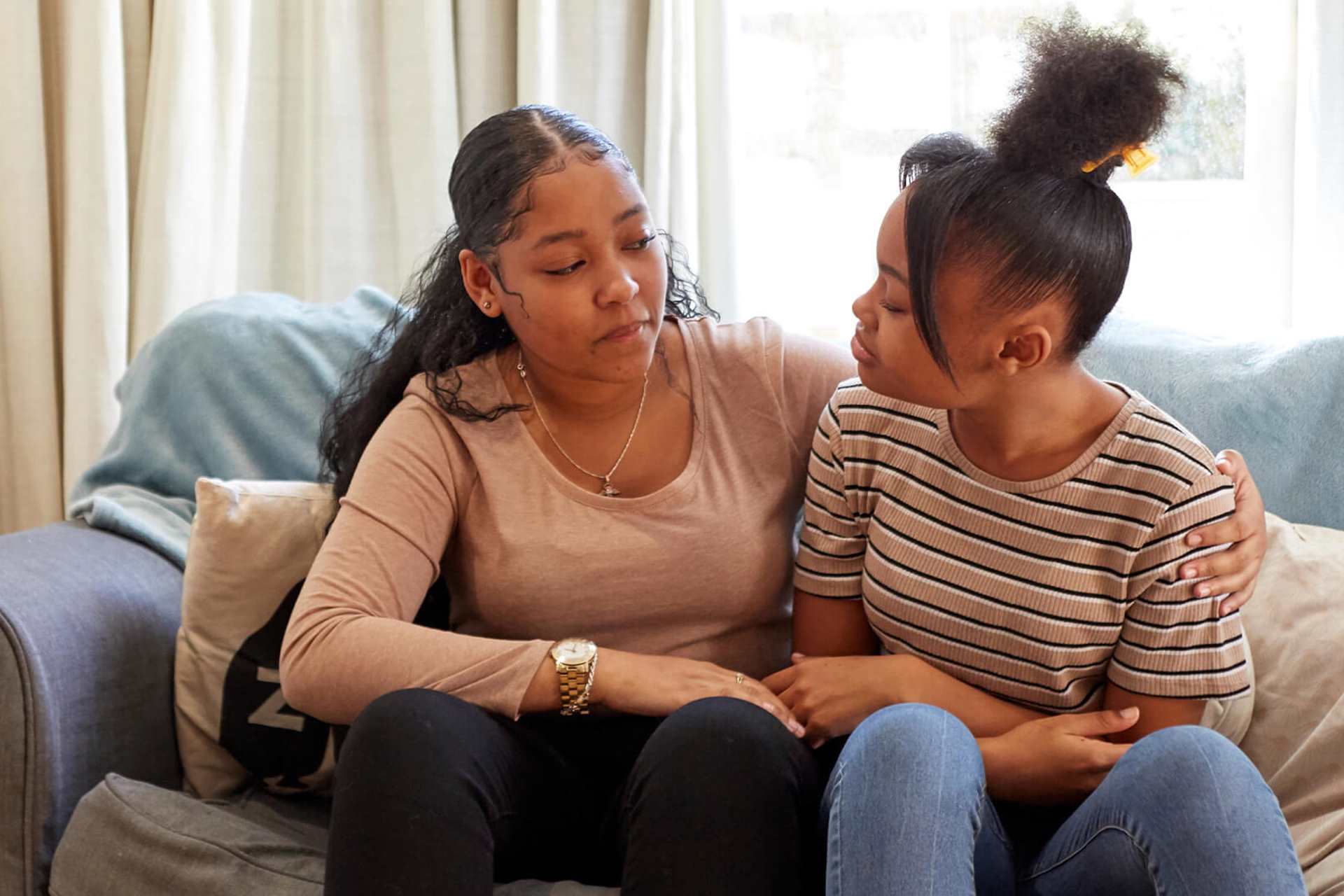Topics mentioned: reaching out for help, self-esteem
About: Returning to school can feel overwhelming and you might feel like everyone is too busy to support you. Hannah shares her tips on how you can reach out for help and look after your mental health.
For many of us a new term will mean new academic challenges and potentially social ones too. However, ensuring that you keep checking in with your mental health should be the biggest priority.
As we approach the return to school, routines, and autumn days, you may find yourself overwhelmed with the thought of a new schedule. For many of us, a new term will mean new academic challenges and potentially social ones too. However, ensuring that you keep checking in with your mental health should be the biggest priority.
Knowing when you need to ask for help with your mental health can seem a challenge in itself at times. You may find yourself questioning the validity of what you are going through, the severity, or whether seeking help is more hassle than it’s worth. However, it is important to be kind to yourself and evaluate your need for help objectively, as we can often talk ourselves out of it.
Think ahead
It is impossible to say how you are going to react to the new term and if the way you feel is going to change as the term progresses. However, you can decide in advance what you might do if you start to need help. An important step you can take is making a point of contact with someone you trust, either inside or outside of school, whether it’s a friend, family member, guardian, or teacher.
Once you decide who you feel able to talk to, share with them how you are feeling going into the school term – are you nervous? Excited? Worried? Doing this can be a good way to open lines of communication before the term is in full swing.
An important step you can take is making a point of contact with someone you trust, either inside or outside of school, whether it’s a friend, family member, guardian, or teacher.
Be a good friend to yourself
We have a tendency to think our circumstances are “not bad enough” to deserve help, but we would never think this of a friend, sibling, family member etc. So, the first step in taking better care of your mental health comes from being objective. Rather than being critical of how you are feeling or what you need, experiment with addressing yourself as if you are a friend or family member. This may seem like an uncomfortable thing to do at first, but it is valuable. Start by asking yourself what advice you would give to someone that you love - this will probably help you decide what steps you should take in looking after yourself.
Start by asking yourself what advice you would give to someone that you love - this will probably help you decide what steps you should take in looking after yourself.
It is always a good time
I know how it feels to worry that everyone is too busy to support you in your mental health struggles. Going back to school is a busy time for everyone, both in school and at home. However, while it may seem that everyone is in their own lane, flustered with their own priorities, there is never a bad time to share that you need help or are struggling.
Putting off having conversations about how you’re feeling will only delay you getting the help you need. Seeking help early, regardless of how busy everyone seems, is the healthiest thing to do. Also, remember there are people in school whose role is to support your pastoral needs, which means they are there at all times for you. If you are unsure or not confident in reaching out to an adult then you could start by reaching out to your friends.
Seeking help early, regardless of how busy everyone seems, is the healthiest thing to do.
Let go of the stigma
It is also important to remember that asking for help is not giving up, it’s moving forward. As a society we celebrate people achieving things “off their own backs” without any assistance from people around them. However, not only is this entirely unrealistic (because the greatest successes most certainly had a team of support behind them), but it is more damaging and can hold you back.
For you to be able to face the challenges of a fresh school term, it’s important to look after your mental health. By putting your mental health first and seeking the help you need, you are preparing yourself for other challenges you may face in life. I am sure you wouldn’t think less of someone you love for seeking support, and you are no different!
By putting your mental health first and seeking the help you need, you are preparing yourself for other challenges you may face in life.
It doesn't have to be heavy
I can understand that asking for help and knowing when to reach out can be daunting because emotions often seem weighty and you may worry about being a burden. However, there are ways to keep the conversations you have about needing help more relaxed. One technique that I have introduced into my own life to keep in contact with how I’m feeling is to send an emoji a day to a friend. This is a small practice but it can go a long way when you are unsure of how to start bigger conversations.
Most of us are feeling a range of emotions about the coming year. So however you’re feeling, know that you aren’t alone. On top of the more general concerns of an upcoming academic year, you have also managed to survive a global pandemic which isn’t something that you should dismiss easily. Remember, there is no right or wrong way to feel, and the right time to get help is always as soon as possible.
Remember, there is no right or wrong way to feel, and the right time to get help is always as soon as possible.
More information and advice
Where to get help
-
Samaritans
Whatever you're going through, you can contact the Samaritans for support. N.B. This is a listening service and does not offer advice or intervention.
- Opening times:
- 24/7
-
Tellmi
Formerly known as MeeToo. A free app for teenagers (11+) providing resources and a fully-moderated community where you can share your problems, get support and help other people too.
Can be downloaded from Google Play or App Store.






